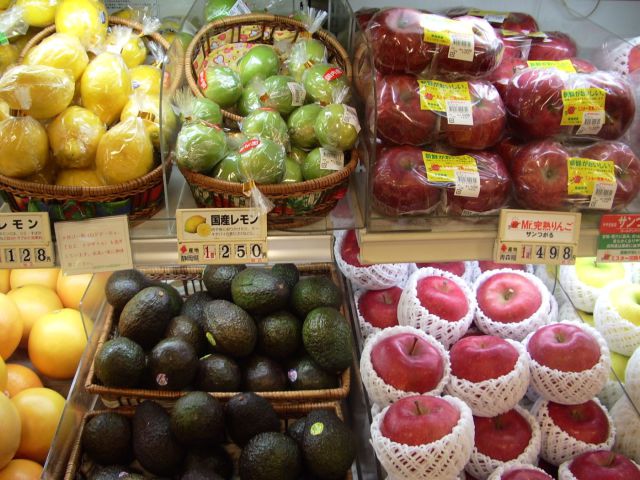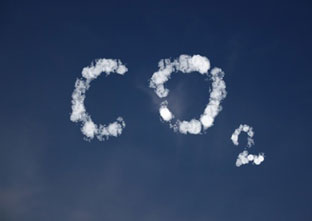
Better labelling for wiser buying
Every product has an impact
No product goes through its life-cycle (manufacturing, transport, distribution, use and end-of-life) without consuming or polluting. Just getting the raw materials means consuming mineral, plant or animal resources...not to mention the energy resources, water and natural spaces used for growing crops. Every product also results in traces of substances being released into the water, air or soil through wastewater, exhaust fumes, etc. Which is why it is right that consumers should be informed about the environmental impact of the product they are buying. This is what is behind a raft of European initiatives to enable consumers to take informed decisions based on environmental considerations.

Carbon footprint
 The carbon footprint of products is the amount of greenhouse gas emitted throughout their life cycle. It is expressed in kg of CO2 equivalent.
You've probably seen something like "The CO2 count of my purchases is: 77.22 CO2-eq. (77.22 kg CO2 equivalent)” on your supermarket receipts.
"The lower the count, the better for the planet!” So, the locally -grown leeks I bought will represent 0.6 kg CO2-eq., my asparagus from Peru 1.7 kg CO2-eq., and so on.
Other supermarket chains have gone for colour-coded labelling where the carbon index of products runs from pale yellow to dark green, i.e., the estimated quantity of greenhouse gas (CO2) emissions given off at various stages in the product life-cycle.
The carbon footprint of products is the amount of greenhouse gas emitted throughout their life cycle. It is expressed in kg of CO2 equivalent.
You've probably seen something like "The CO2 count of my purchases is: 77.22 CO2-eq. (77.22 kg CO2 equivalent)” on your supermarket receipts.
"The lower the count, the better for the planet!” So, the locally -grown leeks I bought will represent 0.6 kg CO2-eq., my asparagus from Peru 1.7 kg CO2-eq., and so on.
Other supermarket chains have gone for colour-coded labelling where the carbon index of products runs from pale yellow to dark green, i.e., the estimated quantity of greenhouse gas (CO2) emissions given off at various stages in the product life-cycle.
Going beyond the carbon footprint
 The good thing is that these labels do at least exist; but they could be better. A product’s carbon footprint is not the only point to take into account when assessing its total environmental impact.
One product may very well have a better carbon count than another, but have bigger impacts in other environmental areas: water use, water pollution, biodiversity, deforestation, etc.
The good thing is that these labels do at least exist; but they could be better. A product’s carbon footprint is not the only point to take into account when assessing its total environmental impact.
One product may very well have a better carbon count than another, but have bigger impacts in other environmental areas: water use, water pollution, biodiversity, deforestation, etc.
Multicriteria environmental labelling of FMCG
ollowing the multi-stakeholder debate (“Grenelle”) on the environment, France has made environmental labelling of mass market consumer products compulsory from the year 2012. The information on the environmental impact generated by a product throughout its life-cycle will allow consumers to make environmentally-informed purchasing decisions and compare products within categories.

Developing the criteria
 To do this, Agency for Environment and Energy Management (ADEME) and French Standards Agency (AFNOR) have worked together with professionals and voluntary organizations to develop a methodology for assessing environmental impact.
Sector groups are tasked with adding specific rules to the joint groundwork for each product category including food, cleaning products, sports equipment, etc.
These will have to take into account two or three significant types of impact on top of the carbon footprint.
To do this, Agency for Environment and Energy Management (ADEME) and French Standards Agency (AFNOR) have worked together with professionals and voluntary organizations to develop a methodology for assessing environmental impact.
Sector groups are tasked with adding specific rules to the joint groundwork for each product category including food, cleaning products, sports equipment, etc.
These will have to take into account two or three significant types of impact on top of the carbon footprint.
Eco-Footprint
 The plastics industry is actively doing its bit with its own initiatives.
Over the past fifteen years, it has published environmental data on 70 polymers for which experts need to calculate environmental impact, for products made with plastics.
It has spent the last three years putting together a European project called Eco-Footprint, which is also based on the Life Cycle Assessment method. The LCA approach is universally acknowledged as clarifying environmental issues, but the calculation of the different kinds of impact need to be appropriately simplified if it is to help informed decision-making.
The Eco-Footprint project aims to develop just such a transparent, and educational, support for professional buyers and consumers wanting to do something positive for the environment.
The plastics industry is actively doing its bit with its own initiatives.
Over the past fifteen years, it has published environmental data on 70 polymers for which experts need to calculate environmental impact, for products made with plastics.
It has spent the last three years putting together a European project called Eco-Footprint, which is also based on the Life Cycle Assessment method. The LCA approach is universally acknowledged as clarifying environmental issues, but the calculation of the different kinds of impact need to be appropriately simplified if it is to help informed decision-making.
The Eco-Footprint project aims to develop just such a transparent, and educational, support for professional buyers and consumers wanting to do something positive for the environment.
The SFIP and PlasticsEurope, in conjunction with Profession Plastique, are staging a day of lectures and panel discussions on Wednesday, 8 December in Paris, on the topic: ‘What will compulsory environmental information for consumers mean for the plastics industry and its customers?’ Click here for the programme and registration form/p>





